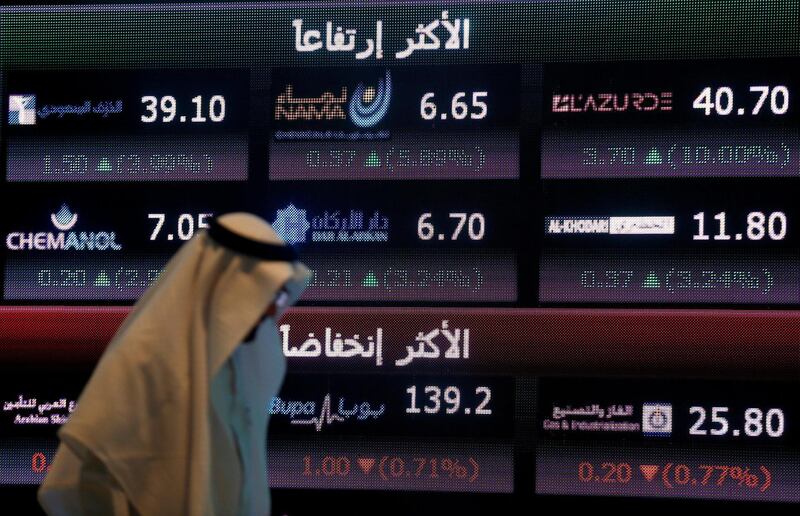S&P Dow Jones Indices has started consultations to upgrade Saudi Arabia to emerging market status, joining other index compilers seeking to revise their classification of the biggest Arab economy.
The company’s consultations, which will end June 15, is being undertaken as Saudi Arabia has revamped its stock market laws and regulations to be more in line with international norms and ease access to foreign investors, S&P Dow Jones said in a statement on Thursday.
“S&P DJI is considering changing the country classification of Saudi Arabia to reflect the progress made with regard to financial market reforms including greater foreign accessibility and alignment with global standards,” it said.
Saudi Arabia’s stock market, the Arab region’s biggest with a market capitalisation of about $500 billion (Dh1.84 trillion), is initiating reforms as part of plans to lure more foreign investors, who currently own around 5 per cent of the market.
The kingdom has implemented a slew of reforms to help win its emerging market status. FTSE Russell upgraded the country in March. Rival MSCI, which is tracked by around $1.6tn in active and passively managed money, is expected to make a similar move next month that could pump as much as $80bn in inflows, according to estimates by Franklin Templeton Investments.
In January, Saudi Arabia made it easier for international investors to buy publicly-traded companies by halving the minimum requirement of qualified foreign investors to $500 million from $1bn. The kingdom also introduced short-selling last year and implemented the T+2 settlement, which means that securities settle two days after they are bought, in line with international norms.
The reforms being undertaken are under the umbrella of Vision 2030, an overarching economic roadmap that was revealed in 2016 and is being implemented in phases.
________________
Read more:
[ FTSE upgrades Saudi Arabia to emerging market status ]
[ Emirates NBD looks to upsize Saudi equities fund to $100m this year ]
________________
Saudi Arabia, the world’s biggest oil exporter, is courting foreign investors as part of reforms aimed at lowering dependence on hydrocarbon income and creating new revenue streams in the wake of the 2014 oil price slump that saw oil drop to below $30 a barrel.
The upcoming sale of a 5 per cent stake in Saudi Aramco, the world’s biggest oil producer, is another catalyst to add the country to S&P DJI. The government may reap as much as $100bn from the listing.
“The anticipated initial public offering of Saudi Aramco has drawn significant foreign investor interest,” said the company. “All of these developments reinforce the need to appropriately reflect the status of Saudi Arabia in global investment portfolios.”
Saudi Arabia could have a potential weighting of 2.57 per cent in S&P Emerging BMI if there is full inclusion and 0.28 per cent weighting in S&P Global BMI if there is full inclusion, the company said.






